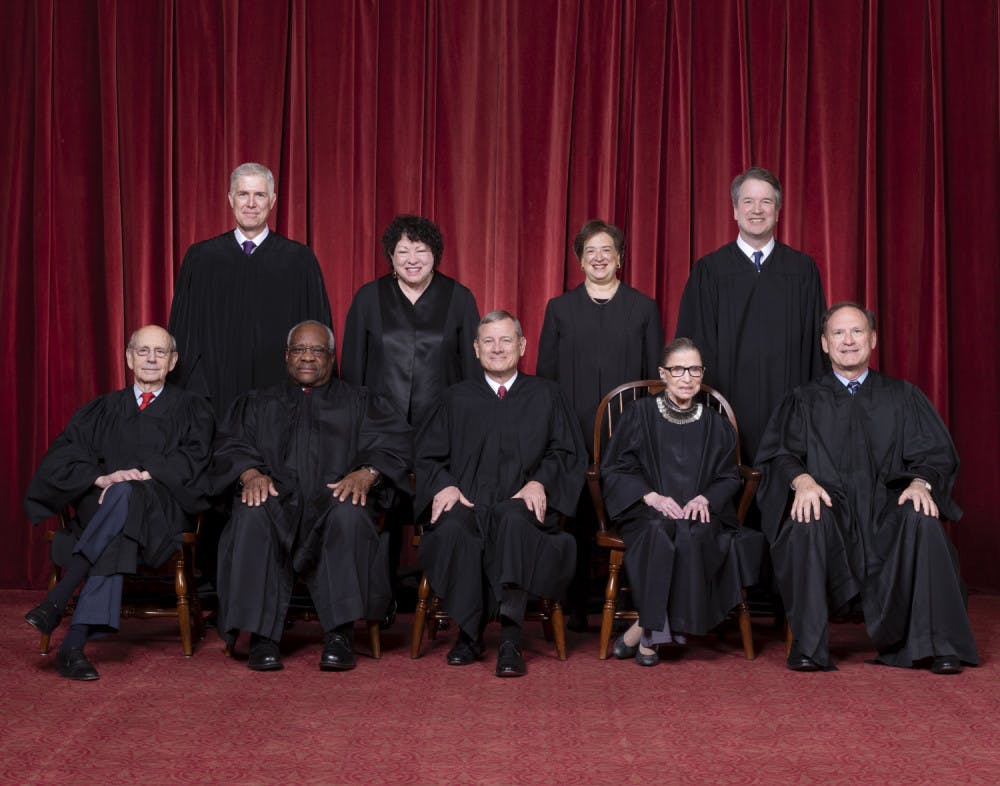Supreme Court Justice Clarence Thomas, who has had a three decade long stay in the court, will teach a short course at UF for law students this Spring.
Thomas and Kathryn Mizelle, a 2012 UF law alumna and his 2018-2019 clerk, will co-teach a class on the First Amendment’s religion clauses next semester, Laura Rosenbury, dean of the UF Levin College of Law, wrote in an email to law students on Oct. 3. Mizelle made history as the first UF law alumnus to be a Supreme Court clerk in 2018.
“We are very excited to welcome both Justice Thomas and Ms. Mizelle back to campus,” Rosenbury said.
The class will meet nine times from Jan. 21-31 and accept 35 applicants, according to an Oct. 3 email Jason Nance, UF Levin associate dean for academic affairs, sent to law students.
Thomas was nominated to the Supreme Court by President George Bush in 1990. During his 1991 confirmation hearings chaired by former Vice President Joe Biden, Anita Hill, who formerly worked for Thomas at two government agencies testified that she was sexually harassed by Thomas. He denied the accusations, calling the hearings a “high-tech lynching.”
Thomas is assigned to the U.S. Court of Appeals for the Eleventh Circuit, which includes Alabama, Georgia and Florida. He co-taught a different UF law class in 2016 and spoke on a panel in 2010.
Whitney Smith, UF Levin assistant dean for messaging and outreach, wrote in an email to The Alligator that administrators couldn’t share additional information until the Supreme Court sent Levin its media guidelines. The Alligator requested Thomas’ contract with UF.
Sloane Henry, a 29-year-old UF third-year law student, is a member of “We Believe Survivors,” a student group she said was made in response to Thomas’ class and advocates for sexual assault survivors.
The organization will host a town hall at Levin next Wednesday and Thursday to play a video of Hill’s testimony and hold an open discussion. Henry said Thomas “does not fit the mold” of professors and mentors she encountered at the law school.
Henry said the law school should know better than to bring Thomas again after the #MeToo movement and Christine Blasey Ford’s testimony against Justice Brett Kavanaugh.
“Times have changed and he should not be welcome to campus,” she said.
This article has been updated to specify Thomas is assigned to the U.S. Court of Appeals for the Eleventh Circuit, which encompasses Alabama, Georgia and Florida.
The Roberts Court, November 30, 2018. Seated, from left to right: Justices Stephen G. Breyer and Clarence Thomas, Chief Justice John G. Roberts, Jr., and Justices Ruth Bader Ginsburg and Samuel A. Alito. Standing, from left to right: Justices Neil M. Gorsuch, Sonia Sotomayor, Elena Kagan, and Brett M. Kavanaugh. Photograph by Fred Schilling, Supreme Court Curator's Office.






